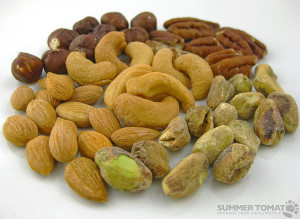 “An ounce of prevention is worth a pound of cure,” is as true today as it was when we heard our grandparents say it. In 2015, Americans should know that what we eat, drink and how much we exercise have a profound effect on our health and well-being. Exposure to harmful, cancer-causing chemicals in our personal care products, cosmetics, cleaning agents and foods is raising our risk for cancer. And our children are most vulnerable to the effects of diet, exercise, and environmental toxins, and will predict their future health outcomes.
“An ounce of prevention is worth a pound of cure,” is as true today as it was when we heard our grandparents say it. In 2015, Americans should know that what we eat, drink and how much we exercise have a profound effect on our health and well-being. Exposure to harmful, cancer-causing chemicals in our personal care products, cosmetics, cleaning agents and foods is raising our risk for cancer. And our children are most vulnerable to the effects of diet, exercise, and environmental toxins, and will predict their future health outcomes.
As a physician, I recognize that we all have an opportunity to enhance our health, and reduce our cancer risk. That is why I became involved with Less Cancer, a not-for-profit organization founded by Bill Couzens that is dedicated to the reduction of cancer risk.
As author of A World Without Cancer, and a board member of Less Cancer, I understand that the special event we’ve planned for February 4th, National Cancer Prevention Day, is necessary to raise awareness and motivate people in all walks of life to do more to prevent cancer. Less Cancer’s event on Capitol Hill will welcome public health and public policy leaders, university students, cancer prevention advocates, legislators and more. I am honored to serve as moderator for the panel discussion, and look forward to a lively exchange of information and insights.
There is so much we can do right now to reduce our cancer risk. Over 50 percent of all cancer is preventable by applying what we know right now. Attention to diet, exercise, avoiding or at least limiting alcohol, ending smoking, protecting our skin from the sun and avoiding stress are important to live healthier lives, with lower cancer risk.
Our children are our future. A critical time of growth and development occurs from childhood to adolescence, when we can improve our children’s health, and reduce their cancer risk. Nutritious meals, including lunch in school, and daily physical exercise, are essential for children and adolescents.
Continue reading…
 It’s no secret that the exercise/diet double whammy is a healthier way to lose weight than diet alone. In addition to shedding fat, exercise improves your cardiovascular system, regulates blood sugar, builds muscle, regulates hormones, and strengthens bones—potentially warding off everything from arthritis to type 2 diabetes to osteoporosis to depression to heart complications.
It’s no secret that the exercise/diet double whammy is a healthier way to lose weight than diet alone. In addition to shedding fat, exercise improves your cardiovascular system, regulates blood sugar, builds muscle, regulates hormones, and strengthens bones—potentially warding off everything from arthritis to type 2 diabetes to osteoporosis to depression to heart complications.
 Crohn’s disease is an autoimmune disorder that affects more than a million Americans. It is an inflammatory bowel disease in which the body attacks the intestines. There is currently no known cure for Crohn’s disease; current research focuses on controlling symptoms. There is no definitive medical or surgical therapy. The best we have is a plant-based diet, which has afforded the best relapse prevention to date.
Crohn’s disease is an autoimmune disorder that affects more than a million Americans. It is an inflammatory bowel disease in which the body attacks the intestines. There is currently no known cure for Crohn’s disease; current research focuses on controlling symptoms. There is no definitive medical or surgical therapy. The best we have is a plant-based diet, which has afforded the best relapse prevention to date. Stephan over at Whole Health Source wrote an interesting article a few years back alleging that paleolithic (and some extant) hunter-gatherers did (and do) utilize wild legumes.
Stephan over at Whole Health Source wrote an interesting article a few years back alleging that paleolithic (and some extant) hunter-gatherers did (and do) utilize wild legumes. Zinc is a vital micronutrient that’s often overlooked. Zinc supports numerous enzymes in the body, strengthens the immune system, and helps with wound healing, synthesis of DNA, and normal growth and development during pregnancy, childhood, and adolescence.
Zinc is a vital micronutrient that’s often overlooked. Zinc supports numerous enzymes in the body, strengthens the immune system, and helps with wound healing, synthesis of DNA, and normal growth and development during pregnancy, childhood, and adolescence. Have you ever wondered why so many diets fail? After all, all of them come with certain guidelines and rules whose primary purpose is to ensure a person is on a right track. The reason a vast majority of diet plans prove to be unsuccessful is that dieters adopt or don’t get rid of unhealthy eating habits that undermine their effort. Throughout this article, you’re going to see how unhealthy food habit affects your diet plan.
Have you ever wondered why so many diets fail? After all, all of them come with certain guidelines and rules whose primary purpose is to ensure a person is on a right track. The reason a vast majority of diet plans prove to be unsuccessful is that dieters adopt or don’t get rid of unhealthy eating habits that undermine their effort. Throughout this article, you’re going to see how unhealthy food habit affects your diet plan. The herbal remedy fenugreek could help reduce hot flashes in postmenopausal women, and improve their quality of life, according to new evidence.
The herbal remedy fenugreek could help reduce hot flashes in postmenopausal women, and improve their quality of life, according to new evidence. Nutrition is one of the key, if not most important, areas to address in order to successfully manage high blood pressure, cholesterol and to maintain overall heart health. Here are some of the best whole foods that can improve these health metrics through a nourishing lifestyle.
Nutrition is one of the key, if not most important, areas to address in order to successfully manage high blood pressure, cholesterol and to maintain overall heart health. Here are some of the best whole foods that can improve these health metrics through a nourishing lifestyle.

